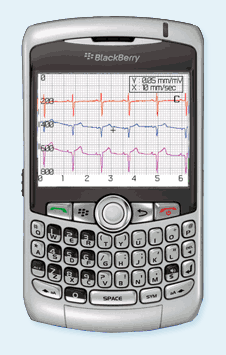 Canada's Globe and Mail has a feature on BlackBerry devices and applications driving innovation in healthcare both for healthcare workers and consumers alike. The feature includes a number of wireless health related predictions from Kevin Talbot, the co-managing partner for BlackBerry Partners Fund, a VC fund based in Toronto.
Canada's Globe and Mail has a feature on BlackBerry devices and applications driving innovation in healthcare both for healthcare workers and consumers alike. The feature includes a number of wireless health related predictions from Kevin Talbot, the co-managing partner for BlackBerry Partners Fund, a VC fund based in Toronto.
“Smart sensors and smart bandages will monitor patient health and communicate with smart phone health management applications that transmit data to health care professionals,” Mr. Talbot told the newspaper. “Patients will also have a health dashboard that shows them (and their doctors) relevant indicators and warnings.”
Talbot also predicts that healthcare workers will use medication management apps to track prescriptions from doctor to pharmacist to patient and the medication's smart packaging will keep track of dosing and adherence.
“Social networking and user-generated content will also meet mobile as the smart phone becomes a health care reference device,” Mr. Talbot says. “And the smart phone will be the medical professional resource of choice for reference materials... When we're at the point when everybody has got a smart phone or computer in hand, the types of applications that will be able to improve our lives will be virtually limitless."
Of course, it's not just a matter of time. BlackBerry-maker Research In Motion's Fraser Edward, whom we have interviewed a few times in the past (here and here), believes the key to driving wireless healthcare forward is workflow management and data integration: “Right now information is a bit fragmented and not quite synchronized, but in time it will all be seamless. Then smartphones will truly break the barriers between hospitals and home care. The next couple of years will be about gluing it all together.”


















